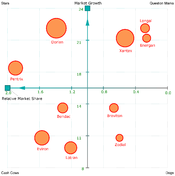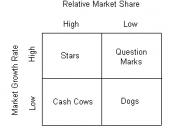'The Honda Effect' With reference to the Honda case study and also drawing on other examples from the Critical Issues course, what are the key theoretical and methodological issues in drawing general lessons from case studies of success? History is subject to interpretation; so are business successes and failures. However ex-post justifications of the latter have proved more profitable. This essay explores the theoretical and methodological issues in drawing general lessons from case studies of success, with particular reference to Honda's successful penetration of the US market in the 1960s.
This essay offers a critical theory and post - modernist approach. Critical theory questions the central features of such recipes for success, the historical and social contexts from which they emerged and the purposes and functions that it may serve. Post - modernism can be seen as an extension of critical theory but has added the dimension of power to knowledge and argues that the two are no separable [Foucault].
In 1946, the Honda Technical Research Institute was established by Sochiro Honda and his partner, Takeo Fujisawa. Having succesfully established itself in the Japanese market, Honda entered the US market in 1959. By 1960, its Supercub model was highly successful. They then created a highly effective as campaign based on "You Meet the Nicest People on a Honda". By 1964, it has dominated almost half of the US market. Later in that year, it required cash on delivery of shipments. As Pascale (1996) says, "In one fell swoop, Honda shifted the power relationship from the dealer to the manufacturer." Honda's success has been analysed and three distinct explanations for its success emerged: ÷ The most prominent is the Boston Consulting Group (BCG) Report. The report states that Honda maximised experience curve economies - low costs at high production volumes. As...


